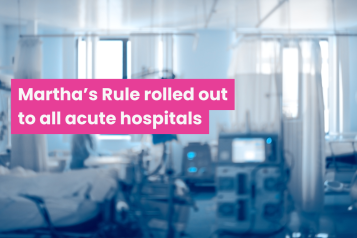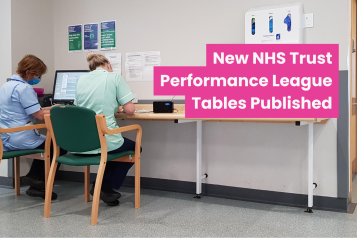NHS England to introduce Jess's rule for GP patients

The government has announced the rollout of Jess's Rule, which aims to improve the process of diagnosing serious illnesses.
Jess's Rule will ask GPs to think again if, after three appointments, they have been unable to offer a substantiated diagnosis or the patient's symptoms have gotten worse.
Many GP practices already use similar approaches in complex cases, but Jess's Rule will make this standard practice across England. The rule aims to reduce health inequalities and ensure everyone – regardless of age or background – receives the same high standard of care.
Designed in collaboration with the Chair of the Royal College of General Practitioners and NHS England, Jess's Rule will help to catch serious conditions earlier.
Healthwatch England Policy Manager, Paul Callaghan, welcomed the announcement:
"The news that Jess's Rule is being introduced into the NHS will come as a relief to those living with the anxiety of worrying symptoms, but are unable to get a diagnosis.
"Jess's Rule will also improve patient safety by ensuring more rapid diagnosis of cancer and other illnesses, and provide clarity to those experiencing sickness or ill health.
"Feedback from the public consistently highlights their frustration with long waits for diagnosis and treatment, and our upcoming report will show how quicker referrals are central to improving people's experiences of using NHS care.
"It is vital that the rule is implemented quickly and consistently, and people can make informed decisions about their care. It's also imperative that specialist teams have the resources to deal with potential increases in demand, resulting from increased referrals."
How did Jess's Rule come about?
Jess’s Rule is named in memory of Jessica Brady, who died of cancer in December 2020 at the age of 27, and will help avoid tragic, preventable deaths as GPs are supported to catch potentially deadly illnesses sooner.
In the five months leading up to her death, Jessica had more than twenty appointments with her GP practice but eventually had to seek private healthcare.
She was later diagnosed with stage 4 adenocarcinoma. With such an advanced disease, there was no available treatment. She was admitted into hospital where she died three weeks later.


